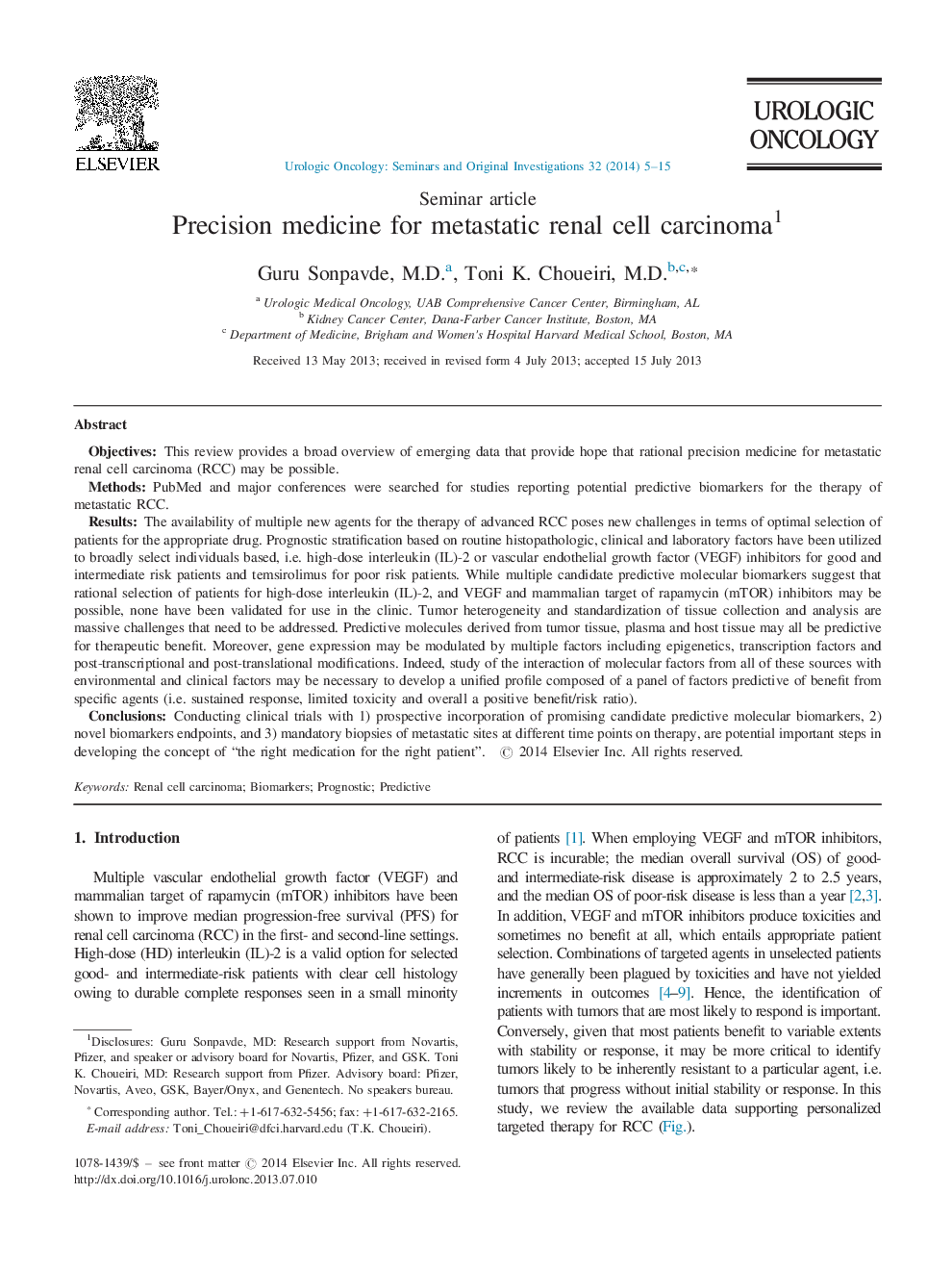| کد مقاله | کد نشریه | سال انتشار | مقاله انگلیسی | نسخه تمام متن |
|---|---|---|---|---|
| 6194365 | 1259362 | 2014 | 11 صفحه PDF | دانلود رایگان |
ObjectivesThis review provides a broad overview of emerging data that provide hope that rational precision medicine for metastatic renal cell carcinoma (RCC) may be possible.MethodsPubMed and major conferences were searched for studies reporting potential predictive biomarkers for the therapy of metastatic RCC.ResultsThe availability of multiple new agents for the therapy of advanced RCC poses new challenges in terms of optimal selection of patients for the appropriate drug. Prognostic stratification based on routine histopathologic, clinical and laboratory factors have been utilized to broadly select individuals based, i.e. high-dose interleukin (IL)-2 or vascular endothelial growth factor (VEGF) inhibitors for good and intermediate risk patients and temsirolimus for poor risk patients. While multiple candidate predictive molecular biomarkers suggest that rational selection of patients for high-dose interleukin (IL)-2, and VEGF and mammalian target of rapamycin (mTOR) inhibitors may be possible, none have been validated for use in the clinic. Tumor heterogeneity and standardization of tissue collection and analysis are massive challenges that need to be addressed. Predictive molecules derived from tumor tissue, plasma and host tissue may all be predictive for therapeutic benefit. Moreover, gene expression may be modulated by multiple factors including epigenetics, transcription factors and post-transcriptional and post-translational modifications. Indeed, study of the interaction of molecular factors from all of these sources with environmental and clinical factors may be necessary to develop a unified profile composed of a panel of factors predictive of benefit from specific agents (i.e. sustained response, limited toxicity and overall a positive benefit/risk ratio).ConclusionsConducting clinical trials with 1) prospective incorporation of promising candidate predictive molecular biomarkers, 2) novel biomarkers endpoints, and 3) mandatory biopsies of metastatic sites at different time points on therapy, are potential important steps in developing the concept of “the right medication for the right patient”.
Journal: Urologic Oncology: Seminars and Original Investigations - Volume 32, Issue 1, January 2014, Pages 5-15
